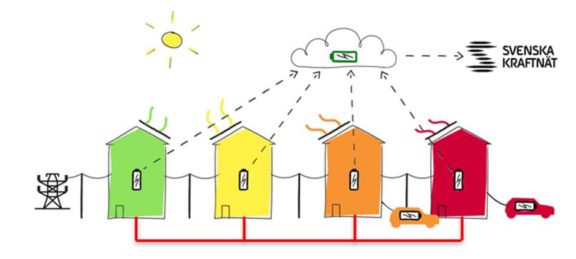Two Swedish cities explore collective self-consumption and new electricity market models
Tamarinden, the new smart neighbourhood of Örebro

The Swedish city of Örebro is developing a new residential neighbourhood: Tamarinden. It will benefit from innovative solutions enabling the buildings and their tenants to reduce, produce, store and share energy with each other.
In addition to energy efficiency measures, solutions for sustainable mobility and traffic calming, and a strong focus on quality of life in its shared public spaces, the new district will be equipped with many small-scale units for renewable energy production, and storage in batteries. Connected to the grid, they will answer large-scale needs, avoid expensive power consumption peaks and make the 600 new homes almost self-sufficient in energy.
This new development, where construction hopefully will start in 2022 , is made possible by a partnership between the Municipality of Örebro, the local housing company ÖBO and the Örebro local energy company (a local branch of E.on)
Uppsala to test new local market models for a more flexible grid

In the Swedish city of Uppsala, as well as in the whole province of Uppland, congestion in the national grid and increased capacity requests, leads to limitation of the city development.
As one of the pilot areas of the H2020 CoordiNet project, Uppsala is experiencing since January a more flexible market organisation at local level, which enables consumers to unburden the power grid when demand peaks occur. For instance, the local actors participating in the market can get incentives to be flexible in their energy use, by reducing or postponing their electricity consumption.
More globally, the CoordiNet project is testing a range of new electricity market models in several local areas in Sweden, Greece and Spain. It aims to demonstrate how DSOs (Distribution System Operators) and TSOs (Transmission System Operators), by acting in a coordinated manner, can provide more favourable cooperation conditions to all actors, while removing barriers to participation for small market players.
Learn more on the project website


